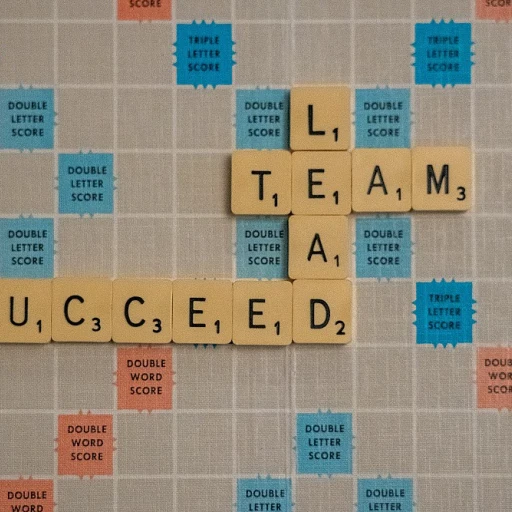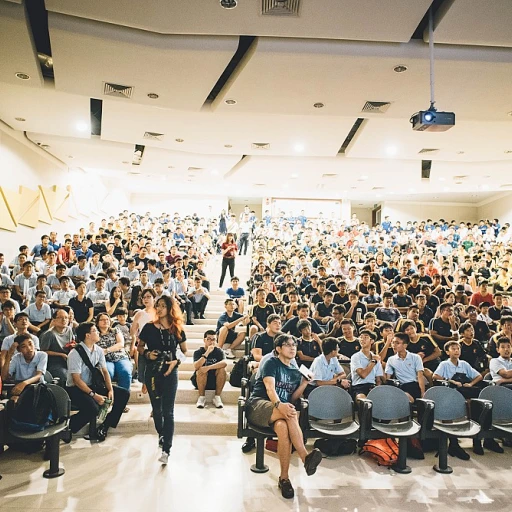
Understanding the Role of an Event Coordinator
Grasping the Role of an Event Coordinator
The role of an event coordinator extends far beyond basic event planning. As pivotal figures in the management and coordination of events, their responsibilities encompass an array of tasks, each vital in ensuring successful events. From the initial planning stages to the day of operations, coordinators are crucial. Their primary duties involve coordinating the venue, managing relationships with vendors, and ensuring seamless event registration. It is essential for an event coordinator to fill a wide range of roles, including that of a communicator, a negotiator, and a problem solver. This multi-faceted job description requires coordinators to work closely with both internal and external parties to guarantee every detail is in place. Understanding the job descriptions can vary based on the event's scale and purpose. Events can range from corporate meetings to large-scale conferences, and an event planner must adapt to each situation. This flexibility demands a mix of skills, ability to provide excellent customer service, and a knack for meticulous event management. In today's fast-paced world, ensuring smooth operations and mitigating potential disruptions requires a structured approach. As such, an event coordinator must often engage in full-time, detailed-oriented planning to manage multiple events simultaneously. To enhance your understanding of the digital aspect of event coordination, explore how contractors are optimizing their efficiencies using modern digital tools here. Coordinators should consider utilizing innovative solutions to support the demands of their evolving role in event planning.Essential Skills for Event Coordinators
Key Skill Sets for Effective Event Coordination
In the fast-paced world of event coordination, possessing a diverse set of skills is crucial. Event coordinators are expected to seamlessly manage and execute successful events—whether it involves a corporate meeting, a wedding, or a large conference. Here are some essential skills that an event coordinator must hone to excel in their role. 1. Communication and Interpersonal Skills Communication is the cornerstone of any successful event. Event coordinators must interact with a variety of stakeholders, including clients, vendors, and internal teams. Effective communication ensures that everyone is on the same page and that expectations are met. Being adept at building relationships with vendors and maintaining positive interactions can significantly affect the smooth operation of events. 2. Organizational and Time Management Abilities Coordinating multiple events simultaneously demands top-notch organizational skills. Event coordinators must be able to juggle numerous tasks, from venue selection and event registration to managing vendors and scheduling meetings. Time management is paramount, and the ability to prioritize tasks can mean the difference between a successful event and one that falls short. 3. Problem Solving and Adaptability Unexpected challenges are inevitable in event coordination. From last-minute cancellations to equipment failures, event coordinators need to think on their feet and quickly come up with solutions. Adaptability is key, as coordinators must adjust their plans to ensure everything runs smoothly despite any setbacks. 4. Customer Service Excellence A significant part of an event coordinator's job is ensuring client satisfaction. Exceptional customer service skills are required to not only meet but exceed client expectations, leaving a lasting positive impression and fostering long-term relationships. 5. Attention to Detail The success of an event often hinges on the small details. From the setup of the venue to the timing of each aspect of the event, coordinators need a meticulous eye to ensure nothing is overlooked. Attention to detail helps in delivering a seamless experience for attendees. These skills form the backbone of any effective event coordinator job description. Enhancing these abilities can support career growth and success within the event planning industry. For more insights, check out our blog on enhancing your event planning skills through strategic support.Educational Background and Certifications
Academic Foundations and Professional Credentials
When stepping into the world of event coordination, having a solid educational background is often an important aspect to bolster the necessary skills and knowledge. Many event coordinators begin their career journey with a bachelor's degree in fields such as event management, hospitality, business, or marketing. These disciplines provide foundational knowledge covering essential areas like customer service, operations management, and vendor relationships—all crucial elements in the day-to-day tasks of the role. Moreover, certifications can immensely support an event planner's career advancement. Credentials like the Certified Meeting Professional (CMP) or the Certified Special Events Professional (CSEP) designation can be a significant boon. Such certifications validate an individual's expertise in managing events efficiently and successfully. Understanding the nuances of event registration, venue logistics, and post-event evaluations are part of the specialized skills honed through these programs. Furthermore, continuous professional development and staying abreast with industry trends are essential for success in this dynamic field. Many coordinators engage in workshops and training focused on new technologies enhancing event planning and management. With the rise of digital tools in event coordination, having a good grasp of relevant technologies is important to ensure seamless event operations and elevate the coordinator's proficiency. For those considering a career in this realm, it’s valuable to have both formal education and recognized certifications to fill the expectations outlined in a typical job description. These qualifications are vital in forming the core of an effective support system in event management, allowing coordinators to thrive in internal and external meeting scenarios. Consequently, this structured skill set is pivotal in executing successful events, thereby bolstering career opportunities and growth within the industry Effortless Power Portal Code Migration.Technological Tools for Event Coordination
Embracing Technology for Seamless Event Coordination
In the rapidly evolving landscape of event coordination, technological tools are becoming indispensable assets for coordinators striving to streamline their operations and ensure successful events. Integrating technology effectively supports the complex nature of event planning, providing solutions that enhance efficiency and organization. Event coordinators frequently rely on a robust suite of tools to manage jobs effectively, from initial planning stages to post-event analysis. Here are key technological tools that are instrumental in the modern coordinator's toolkit:- Event Management Software: These platforms are essential for coordinators, offering a comprehensive suite of features that includes event registration, vendor relationships management, and task assignment, facilitating seamless planning and execution.
- Project Management Tools: With the multifaceted nature of managing events, these tools help coordinators organize tasks, delegate responsibilities, and ensure all elements of the job description are covered efficiently.
- Customer Relationship Management (CRM) Platforms: These platforms are crucial for building and maintaining relationships with both internal and external stakeholders, enhancing customer service and ensuring stakeholder satisfaction throughout the event journey.
- Communication and Collaboration Platforms: Essential for facilitating seamless communication among team members and vendors. These tools ensure that all parties involved in the event are aligned and informed, minimizing errors and miscommunications.
Industry Trends Impacting Event Coordination
Keeping Up with Event Management Trends
In the rapidly evolving field of event coordination, staying updated on industry trends is essential for an event coordinator to remain competitive and effective in their role. Here are some key developments impacting this field:
- Virtual and Hybrid Events: With the rise of digital technology, virtual and hybrid events have become commonplace. Coordinators need to become proficient in tech platforms used for virtual meetings and events, as well as understand the unique skills required to manage a blend of live and virtual attendees seamlessly.
- Sustainability Initiatives: There is a growing trend towards sustainability in event planning. Coordinators are expected to organize events that minimize environmental impact, which includes optimizing venue selections, reducing waste, and working with vendors who support eco-friendly practices.
- Data-Driven Decision Making: The ability to leverage data analytics is becoming increasingly important. From understanding demographic data to post event analysis, using data effectively can help in tailoring experiences and evaluating event success. This approach not only enhances event planning but also supports continuous improvement in management and operations.
- Customer-Centric Approach: Event coordinators are placing more emphasis on enhancing customer service and experience. This requires strong interpersonal skills and the ability to form successful relationships with both internal and external stakeholders, including clients, vendors, and attendees.
- Technological Integration: Leveraging advanced tools for event registration, operations management, and customer engagements is critical. As technology evolves, it is crucial for coordinators to stay informed and adaptive, ensuring they can fill the needs of the event effectively.
By staying informed on these trends, event coordinators can better navigate the ever-changing landscape of event management, ensuring their events remain relevant and impactful.
Career Growth and Opportunities
Climbing the Career Ladder in Event Coordination
For those passionate about orchestrating successful events, the role of an event coordinator offers a dynamic and rewarding career path. As you gain experience in managing events, from planning to post-event evaluations, the opportunities for career growth expand significantly.
Event coordinators often start by supporting more experienced planners, gradually taking on more responsibilities. With time, they can move into senior coordinator roles, overseeing larger events and managing complex logistics. This progression requires honing essential skills such as problem solving, customer service, and relationship management with vendors and clients.
As coordinators develop their skills and build a reputation for executing successful events, they may transition into event management positions. These roles involve strategic planning, managing a team of coordinators, and ensuring seamless operations across multiple events. The ability to manage internal and external communications effectively becomes crucial at this stage.
For those interested in specializing, opportunities exist in niche areas such as corporate events, weddings, or non-profit event planning. Each specialization requires a deep understanding of the specific industry trends and client needs, as well as the ability to fill unique job descriptions.
Moreover, the event industry is evolving with technological advancements. Familiarity with event registration software, virtual meeting platforms, and other tech tools is increasingly required. Staying updated with these trends not only enhances your skills but also positions you as a valuable asset in the job market.
Ultimately, the career trajectory of an event coordinator is shaped by a combination of experience, skills ability, and a proactive approach to learning and adapting. Whether you aim to lead a team or specialize in a particular type of event, the opportunities are vast for those committed to excelling in this vibrant field.













